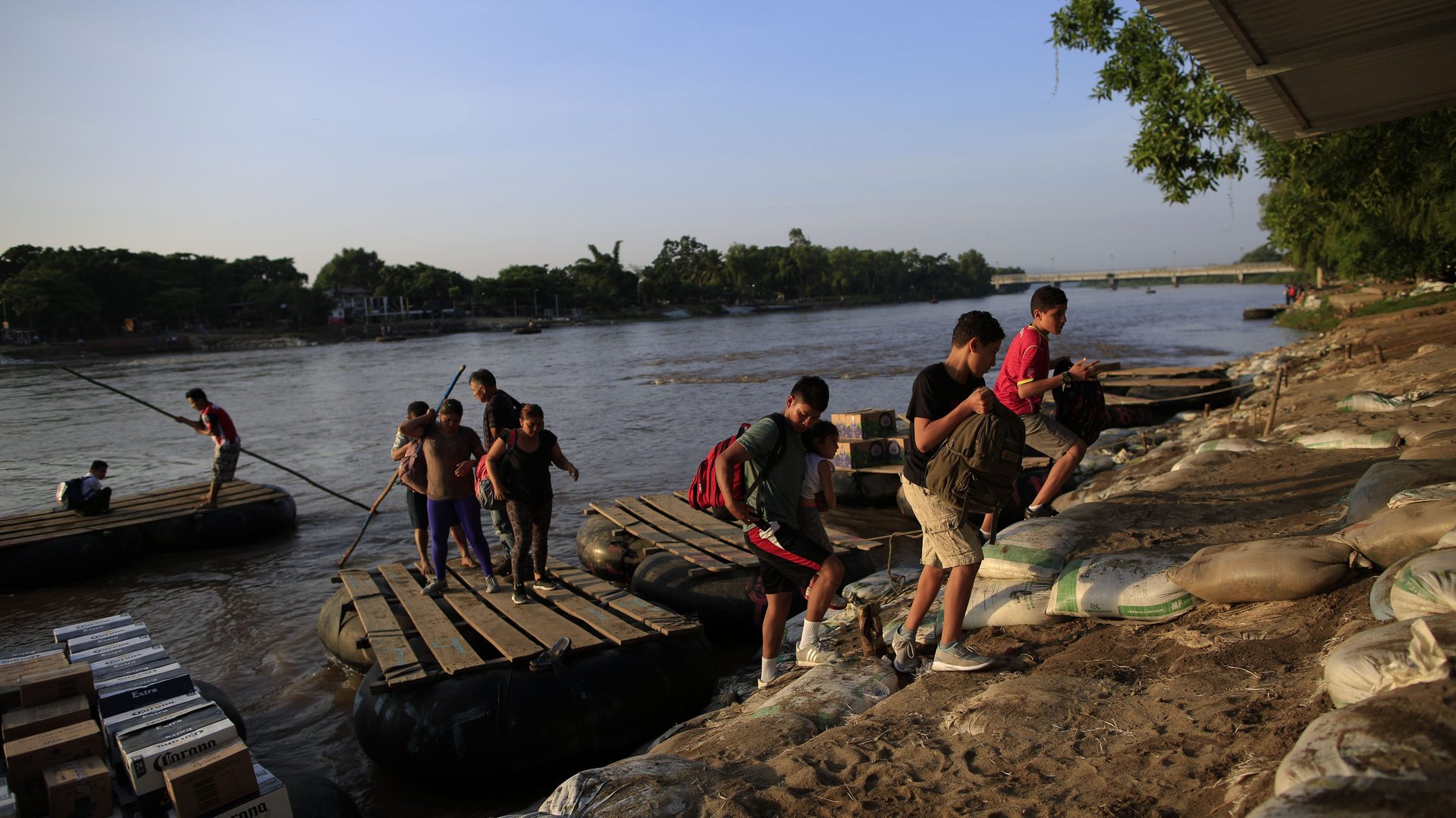Remittance fees would give Guatemalans more reasons to migrate to the US
Tens of thousands of Guatemalans have been migrating to the US in recent months. Even more would likely be trekking north were it not for the billions of dollars those who already made it send back home every year.


Tens of thousands of Guatemalans have been migrating to the US in recent months. Even more would likely be trekking north were it not for the billions of dollars those who already made it send back home every year.
On Tuesday, US president Donald Trump threatened to tax those remittances to Guatemala after that country’s Supreme Court blocked a deal the US hoped would reduce the number of asylum seekers showing up at its southern border. The agreement would have designated Guatemala a “safe third country,” forcing immigrants traveling through it to request asylum there instead of the US.
Cutting the dollar flow from the US to Guatemala would certainly punish Guatemalans. But it would also hurt Trump’s efforts to reduce immigration.
Guatemalans living abroad wired $9.3 billion in remittances last year, most from the US. They’re set to break that record this year—they sent nearly $5 billion home already between January and June.
To be sure, those dollars act as potent marketing for the advantages of living in the US. But they also feed, clothe, and house many Guatemalans. Families that receive remittances are more likely to educate their kids, work more hours, and start their own businesses than those that don’t, a 2018 International Monetary Fund analysis found.
The losses would also reverberate throughout the economy, as Guatemalans with relatives abroad spend less in local stores and businesses. Last year, remittances made up nearly 12% of the country’s GDP. A worsening economy, particularly in areas where lack of opportunities have pushed locals to migrate, would likely give Guatemalans stronger reasons to leave. Some of those places are already struggling due to drought.
The top goal for migrating to the US cited by one northbound caravan was a better quality of life, according to a 2018 survey by the United Nation’s Migration Agency.